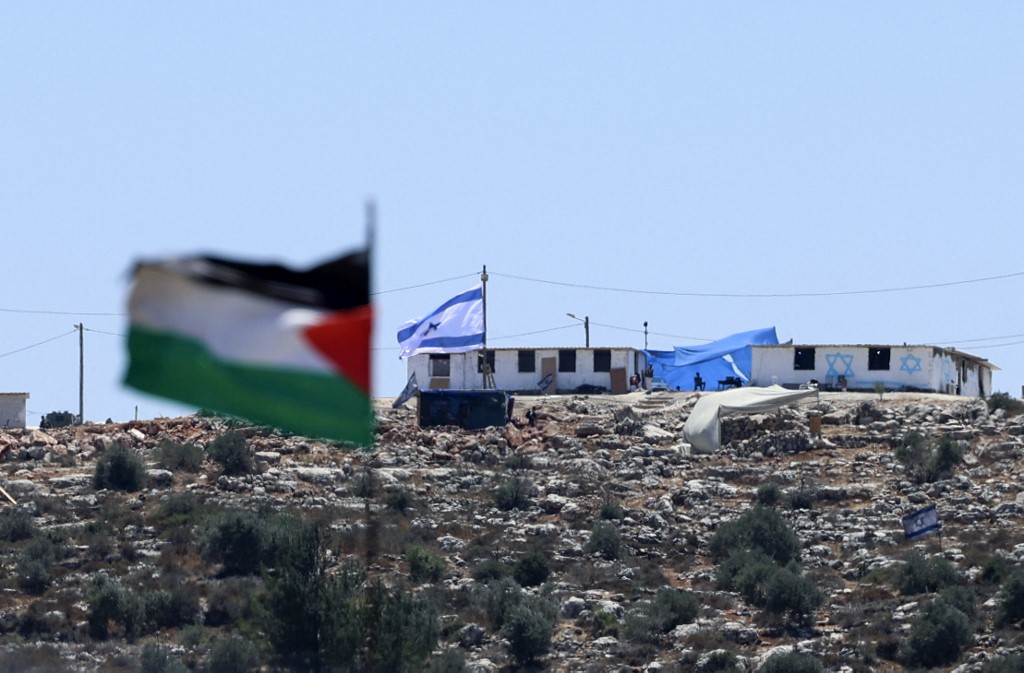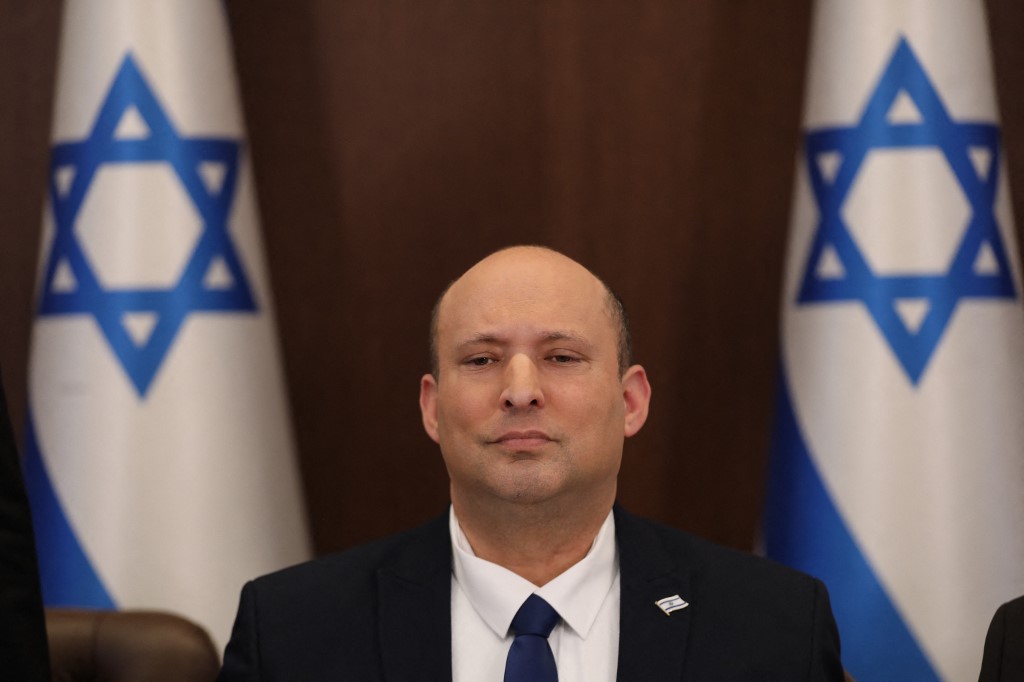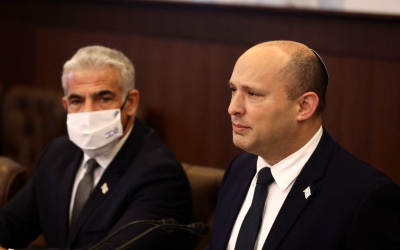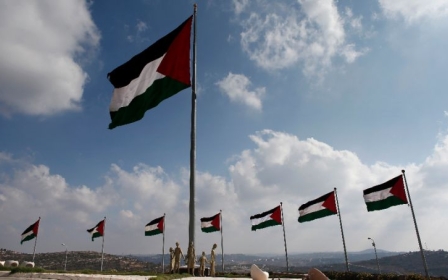Israel: Doubt over bill 'constituting apartheid' in West Bank throws government off

The absence of a clear majority in the Israeli parliament has raised fears that a critical regulation governing West Bank settlers will not be extended, potentially placing them under military rule and causing Israel a legal nightmare.
On Monday the Israeli parliament, or Knesset, postponed a vote on the extension of the emergency law, in place since 1967, after doubts rose over it attaining enough votes to pass.
New MEE newsletter: Jerusalem Dispatch
Sign up to get the latest insights and analysis on Israel-Palestine, alongside Turkey Unpacked and other MEE newsletters
The temporary regulation is renewed every few years to ensure that civilian Israeli law is applied to settlers living in West Bank settlements, as opposed to the military law governing Palestinians living adjacent to them.
The right-wing Likud Party, which leads the opposition in parliament, has vowed not to vote on any laws brought forward by the ruling coalition, which has half the seats in parliament.
With pressure from Palestinians mounting on the United Arab List - made up of Palestinian citizens of Israel who are part of the ruling coalition - to vote against the extension, fears have grown over its failure to pass, which could trigger a legal mess.
A new vote is scheduled for next Monday, giving the ruling coalition extra time to gather enough supporters to pass the extension, which is due to expire by the end of June.
The extension will most likely pass in the end, experts say, but the mere uncertainty over it raises uncomfortable questions about the state of Israeli politics and the occupation.
'Constitution of the apartheid'
The "Emergency Regulations – Judea and Samaria, Jurisdiction and Legal Aid" was introduced in the West Bank after Israel occupied the Palestinian territory following the 1967 Middle East war.
The emergency regulation became an important centrepiece of the Israeli legal system, particularly after the flow of settlers into the West Bank began to grow, an illegal practice under international law that prohibits the transfer of an occupying power's civilian population to occupied territory.
The regulation allowed hundreds of thousands of Israelis to live on land outside of its boundaries while enjoying full privileges of Israeli citizenship and residency.
Under this umbrella, Israeli settlers are tried in civilian courts, allowed to receive social and health benefits and run for public office, among other rights.
All the while, the three million Palestinian population of the West Bank are subjected to military rule under which they are tried in military courts, denied full freedom of movement and restricted from accessing land and resources.
"This law is the constitution of the apartheid regime in the West Bank," Israeli legal expert Michael Sfard told Middle East Eye.
"It is the legislation by which differentiation in the legal application is imposed on Israelis and Palestinians. It is something I consider to be shameful and morally despicable."
Today, more than 600,000 settlers live in over 200 West Bank settlements, including Supreme Court judges, members of parliament and high-ranking military officers.
Legal nightmare
If the regulation is not extended, settlers will overnight become subjected to military law - the same law imposed on Palestinians.
"It's like shutting down the police," Sfard said.
"If it's not extended, then it redraws the Green Line and reintroduces military rule on Israelis...they become citizens who live abroad."
In theory, Israeli police will not be able to operate in the settlements, settlers who commit crimes in the West Bank would be tried in military courts, and their right to receive government health insurance would be rescinded.
'It's like shutting down the police'
- Michael Sfard, Israeli legal expert
It will also have an immediate impact on at least two judges serving in the Supreme Court and some MPs, who will all cease to be residents of Israel, a requirement for them to serve in public posts.
The regulation also allows prisons in Israel to hold Palestinians charged by military courts. If it is not extended, Israeli jail authorities will no longer have the power to keep some 3,600 Palestinian prisoners who will need to be sent back to the West Bank, Sfard explained.
It's such a "central piece in the legal architecture of the Israeli regime in the West Bank," Sfard said, that it's nearly impossible to imagine the extension not passing next week.
"The only reason we are talking about it is because there is suddenly a political mess which raises doubts whether they will be able to extend it."
'Holding on by a thread'
Earlier this week, doubt over the extension of the bill emerged after the opposition - who hold 60 seats out of 120 Knesset seats - said they would not support it, in an attempt to put pressure on the ruling coalition.
Further concerns came from the reluctance of the United Arab List to vote on it since many Palestinians view it as a bill institutionalising apartheid.
Justice Minister Gideon Saar, who is seeking to extend the bill by five years, warned that the "game being played by the opposition is not only unprecedented but dangerous", in an interview with Israeli broadcaster Kan on Tuesday.
"A coalition MP who opposes the bill is saying, 'I don't want this government to continue,'" he said.
But Saar himself has been named in media reports as holding talks with Benjamin Netanyahu, the head of the opposition, to form an alternative coalition in case the current government falls.
His right-wing party, New Hope, and Netanyahu's Likud both dismissed the reports.
Meanwhile, Prime Minister Naftali Bennett held meetings on Wednesday with the heads of parties forming the ruling coalition, hoping to secure a majority for the emergency law vote next week.
"It is a very unusual situation, almost amusing," said Orly Noy, an Israeli political activist and journalist, puzzled at how such a routine vote over a legal technicality is throwing the government off.
"As children, we used to amuse ourselves with this silly riddle, can God create a stone so heavy that even God itself can't lift it? So now I think we are facing a similar question. Has Israeli apartheid finally arrived at a situation where its supremacy is collapsing from within?"
On Thursday, Mansour Abbas, leader of the United Arab List, was quoted as saying to Kan that he did not oppose voting in favour of extending the bill, but rather the timing of it, as it comes immediately after a series of Israeli raids on al-Aqsa Mosque and the right-wing flag march in Jerusalem where Israeli police and ultra-nationalists assaulted Palestinians.
"Next week is a new week, and we will study the vote on the law in another atmosphere," Abbas said, hinting that his list could vote in favour, giving a boost to Bennett.
But negotiations are continuing to secure the majority needed, as doubt still presides over the position of some members of the left-wing party, Meretz
Sooner or later, Noy believes, the government will find a way around it and pass the bill. But what this confusion reveals is a "very meaningful thing about the true nature and incentives that operate and make Israeli politics".
"The government is holding on by a thread," she said. "If it's not this, it will be something else that brings the government down."
Middle East Eye delivers independent and unrivalled coverage and analysis of the Middle East, North Africa and beyond. To learn more about republishing this content and the associated fees, please fill out this form. More about MEE can be found here.







